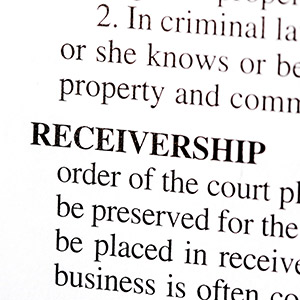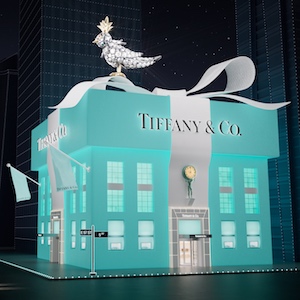
David Sherwood, CEO of Daniel’s Jewelers, was looking for a tagline for his 110-store chain’s Valentine’s Day campaign. He turned to the tool he now prefers over Google: ChatGPT, the headline-grabbing artificial-intelligence-powered chatbot.
“We said, ‘Give us 20 taglines,’” he says. “We asked for ‘quirky, mildly funny Valentine’s Day taglines for a jeweler.’”
It spit out a bunch in return. “They were all good,” he says. “None of them were amazing.”
But most of them were good enough to work. After some tweaking internally and with its ad agency, Daniel’s ended up going with “Bling it this Valentine’s Day.”
“It’s cute,” says Sherwood. “I don’t think anyone would look at the billboard and say that billboard was written by AI.
“Maybe we would have come up with that on our own, but certainly not in three seconds,” he adds. “What usually happens is, when we are working on different ad campaigns, a group of us get together, and over the course of a few days, we brainstorm and winnow it down to the best stuff before selecting the eventual winner.
“The tool allows you to bypass that entire process. You get as many ideas as you want, and it lets you hone in. It helps to speed things up. In record time you can produce something that’s just as good as you’d get from brainstorming.”
Sherwood still had an ad agency put the billboard together and source the accompanying photo. Daniel’s overarching tagline, “Own the dream,” was created by its marketing team, after extensive research on its core Hispanic customer.
“AI can’t do the whole thing,” he says.
Still, in this case, it did a lot.

But Sherwood has been using ChatGPT for applications beyond marketing. He recently had to write up a contract for a deal with an influencer, and ChatGPT provided the template. He then made adjustments and had an attorney examine the language. But 80% of the final product originated from the tool.
It will also likely be useful in writing training programs and blog posts, he says.
“If you say, ‘Write me a training program for gemstones,’ it could give you a reasonable syllabus and course summary along with questions and answers in three seconds, which would take a regular person three weeks. It’s B-minus quality. But often times that’s good enough to start with.
“Most [jeweler] blogs aren’t really read anymore, they are just for SEO purposes. I think SEO firms are going to have to rethink their value. There’s really no point in having a person write a blog when this does it in three seconds for free and it’s of equal quality.”
ChatGPT debuted on Nov. 30. Many remain stunned by what it can do, although critics have noted that it sometimes supplies incorrect information (which its homepage explicitly acknowledges) and has certain limits.
It’s “a toy, not a tool,” declared The Atlantic.
Sherwood doesn’t believe ChatGPT, and similar tools coming on the market, will make attorneys and writers obsolete. But their jobs will evolve, so they’ll spend less time doing rote regurgitation. He considers these programs a natural progression of the tools we’ve used for years—but better.
“I don’t really consider ChatGPT artificial intelligence. It’s just a really good search engine. This is what you wish Google would return when you ask a question. Instead, you get 700 links and a lot of ads.
“That’s why this tool seems revolutionary. Google has devolved. This gives you the answers to the questions that you want.”
(Photo courtesy of Daniel’s Jewelers)
Follow JCK on Instagram: @jckmagazineFollow JCK on Twitter: @jckmagazine
Follow JCK on Facebook: @jckmagazine





